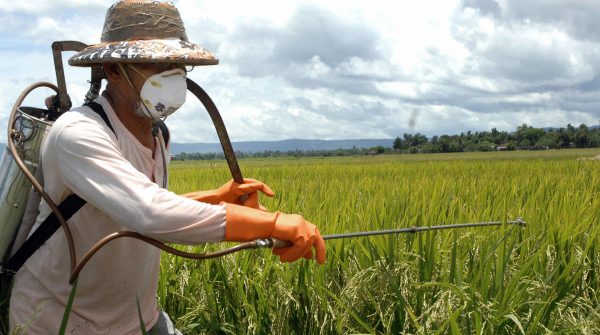The implementation of The Bee Guidance, an EU guideline to protect bees from the harmful effects of pesticides, has been on hold in member states across the EU since 2013. And under pressure from the obstructionists, the guideline is now being drastically modified.
Confidential documents from Follow The Money, a Dutch platform for investigative journalism, show that advanced plans exist in Brussels to weaken significantly the pesticides guideline. The watered-down version was presented to the member states behind closed doors on 24 and 25 January 2019. Around 20 tests to investigate the risks to bees are deleted. In a confidential e-mail, the Netherlands asked the European Commission to remove even more studies from the guideline.
Follow the Money finds it striking that in confidential correspondence, the Netherlands argues in particular for the deletion of field studies. Exactly the same plea can be found in a lobby letter that the Dutch representatives in Brussels received on 15 January 2019 from the European Crop Protection Association (ECPA), the interest group of pesticides manufacturers, including Bayer, BASF and Syngenta.
In a response to Follow The Money, the Dutch Ministry of Agriculture stated that the position of the Netherlands was established on the basis of advice from the national pesticide regulator. These opinions, however, are not public. A decision on the EU pesticide guideline is expected in Brussels after 20 and 21 May’s meetings.
Three quarters of the world’s agricultural crops depend on insects, in particular on bees, for fertilization; the same applies to many wild plants. There is little disagreement among scientists; the causes of the bee’s mortality are habitat loss, and the ruthless use of synthetic pesticides. More than 40 percent of all insect species suffer from mortality, and a third are even threatened with extinction.
Looking for some more respect for nature? Find it in DiEM’s transnational programme European Spring. DiEM’s position: For too long, the EU has allowed private interests to ravage our natural habitat.
DiEM25 will align the Common Agricultural Policy (CAP) with policies like the Pesticides Directive and the Birds and Habitats Directive. It will transform European agricultural and land use policy in order to guarantee food and resource security and improve environmental sustainability.
DiEM25 also proposes a public “Mandatory Lobby Register” that requires all lobbyists to register with the EU and requires all EU officials to report when, where, and why they meet with lobbyists, as well as any benefits they receive from them — directly or indirectly, before or after the lobbying campaign. The current EU lobby register is “voluntary.” DiEM25 believes that all lobby groups should be forced to disclose how much they spend on their campaigns, and which officials they target. Minutes of all such meetings must be prepared and submitted to an independent oversight body.
Do you want to be informed of DiEM25's actions? Sign up here















